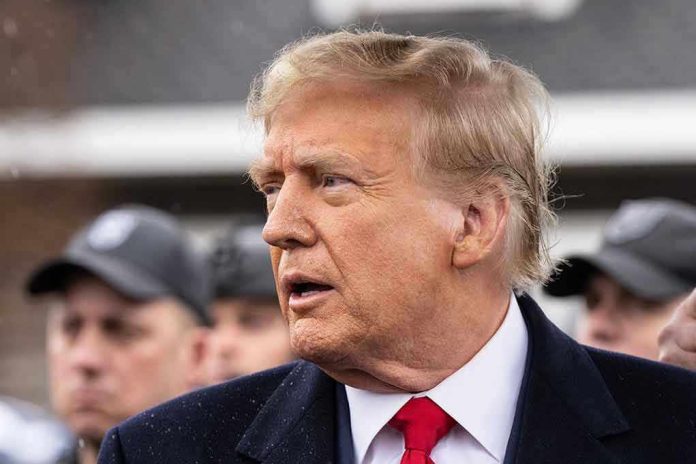
JD Vance ignited a political firestorm by declaring certain Democratic lawmakers’ advice to the military as illegal.
Story Highlights
- Vice President JD Vance criticized six Democratic lawmakers for their video urging military personnel to defy illegal orders.
- President Trump labeled these lawmakers as “traitors” and called for their imprisonment on charges of sedition.
- The controversy arose during National Guard deployments in Democratic-led cities, sparking debates over military and civilian roles.
- Legal experts debate the legality of the lawmakers’ advice, which they argue aligns with military law principles.
Political and Legal Clash Over Military Orders
Vice President JD Vance sharply criticized six Democratic lawmakers for their video advising military personnel to refuse unlawful orders. This advice, he argued, was “by definition illegal.” The lawmakers, including Mark Kelly and Elissa Slotkin, emphasized the legal right of service members to reject illegal commands, a principle rooted in the Uniform Code of Military Justice (UCMJ). Vance’s comments have stirred a political and legal debate, with President Trump intensifying the conflict by accusing the lawmakers of sedition.
In response, President Trump took to Truth Social, branding the lawmakers as “traitors” and demanding their arrest. This incident has put a spotlight on the delicate balance between civilian oversight and military obedience. Legal experts argue that the lawmakers’ message aligns with military law, which allows service members to refuse unlawful orders. However, Vance and Trump’s accusations have amplified tensions, raising questions about the boundaries of political speech and military discipline.
The Role of National Guard Deployments
The backdrop to this controversy includes President Trump’s deployment of National Guard units to Democratic-led cities citing public safety emergencies. These deployments have drawn criticism for undermining local autonomy and civil liberties. The six lawmakers argue their video was a preventive measure to protect military personnel from potentially unlawful orders in politically sensitive scenarios. The unique composition of these lawmakers, many with military backgrounds, gives weight to their message, but also exposes them to accusations of undermining civilian control.
The deployment of the National Guard in cities like Los Angeles and Chicago has historically been contentious, often viewed through a lens of political maneuvering. Trump’s administration faced scrutiny over these actions, with critics arguing that they serve more as political statements than genuine safety measures. The lawmakers’ video, therefore, can be seen as a reaction to these ongoing deployments, aiming to reinforce the rule of law among troops.
Legal and Historical Context
The debate over the legality of the lawmakers’ advice is intertwined with the historical principle of civilian control over the military. The UCMJ clearly states that service members must obey lawful orders while allowing the refusal of unlawful ones. This principle was reinforced after incidents like the My Lai massacre during the Vietnam War. Legal scholars argue that reminding troops of this principle is consistent with military law, yet the public nature of the lawmakers’ advice has stirred controversy and accusations of incitement.
Historically, the Posse Comitatus Act limits the use of federal military forces for domestic law enforcement, leaving room for National Guard deployments under specific conditions. This legal framework underscores the complexity of the current situation, where political narratives and legal principles collide. The lawmakers’ actions highlight the ongoing challenge of maintaining military discipline while safeguarding constitutional rights in a highly polarized political environment.
Responses and Reactions
Senator Elissa Slotkin clarified that she was unaware of any instance where President Trump authorized unlawful military action, aiming to quell rising tensions. Despite this, the controversy remains heated. The Department of Defense has not officially commented, though legal experts continue to debate the ramifications of the lawmakers’ advice. JD Vance’s comments reflect a broader concern over maintaining military order in an era of increasing political polarization.
This situation underscores the fragile relationship between civilian leadership and the military. As legal scholars and military analysts weigh in, the debate brings to the forefront questions about the limits of civilian influence over military actions, particularly in contexts charged with political significance. The long-term implications for military law and policy could be significant, influencing future deployments and the legal framework governing military orders.



